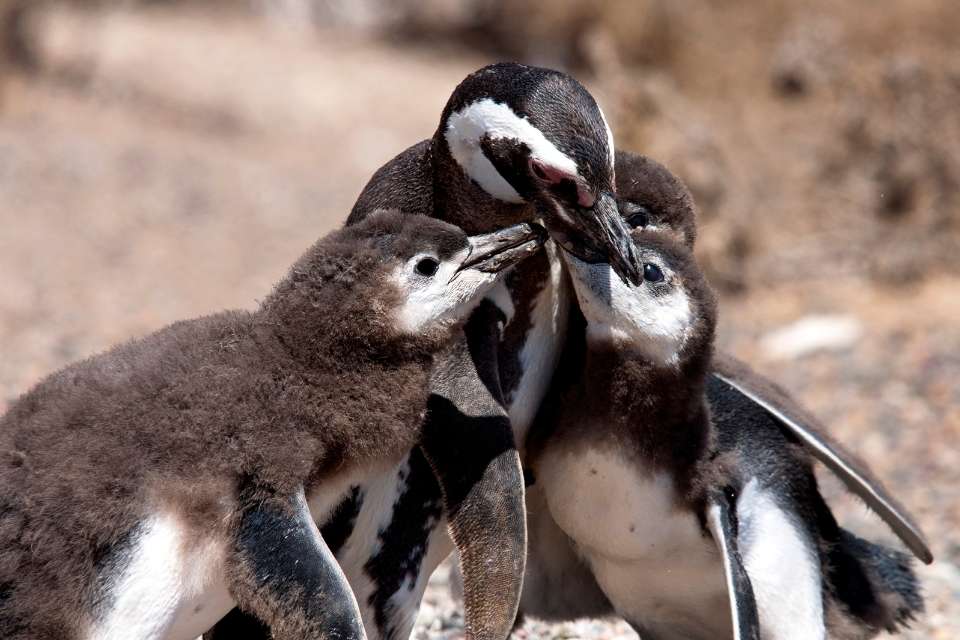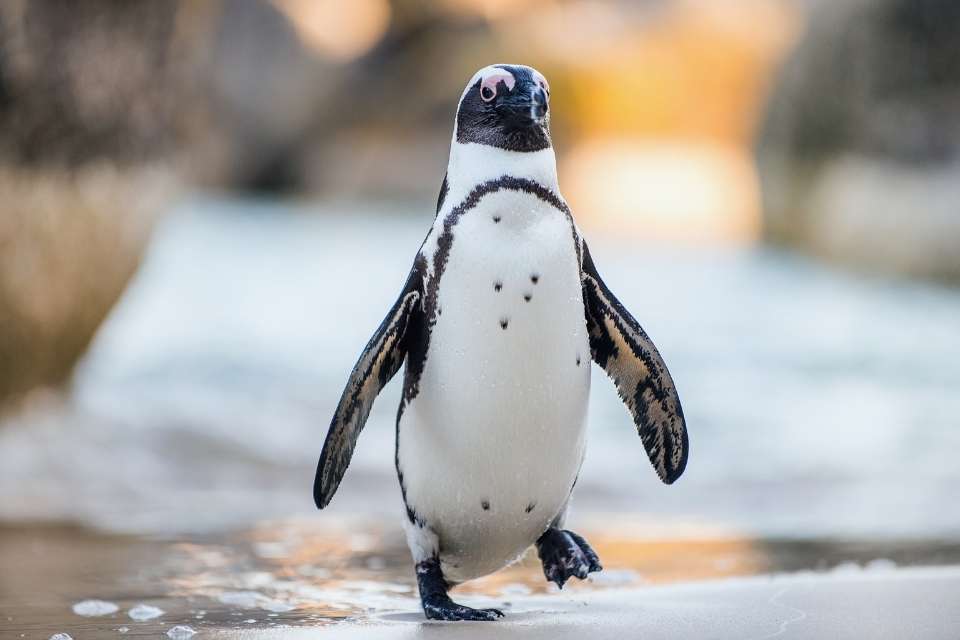In the wild, penguins have displayed remarkable nurturing behavior towards abandoned chicks.
Penguins have been observed exhibiting nurturing behavior towards abandoned chicks, either their own species or those from other penguins. However, successful adoptions are relatively rare.
According to Dr. Iain Staniland, an Antarctic Wildlife Biologist, penguins possess a broody nature that compels them to care for abandoned chicks, including those that are artificial replacements, such as snowballs.
Research conducted in 1994 revealed that 28.7% of a penguin colony adopted chicks during a breeding period, with over half of these adoptions occurring due to kidnappings, while the rest involved abandoned chicks.
This behavior is influenced by a hormone called prolactin, but the overall impact on the adoptive parents remains uncertain.
Key Takeaways:
- Penguins have a nurturing instinct that drives them to care for abandoned chicks.
- 28.7% of a penguin colony adopted chicks during a breeding period, with kidnappings accounting for over half of these adoptions.
- Prolactin is the hormone that influences penguin chick adoption behavior.
- The long-term effects of penguin chick adoption on both the adopted chicks and the adoptive parents are still not fully understood.
- Further research is required to determine the impact of chick adoption on penguins and the chicks themselves.
The Role of Prolactin in Penguin Chick Adoption
Prolactin is a crucial hormone that drives penguin chick adoption behavior. When penguins experience elevated levels of prolactin, they are more likely to exhibit nurturing behavior and take on the responsibility of raising abandoned chicks.
This hormone plays a significant role in fostering the broody nature of penguins, compelling them to care for young ones, whether they are their own offspring or abandoned chicks.
In studies, it has been observed that reducing prolactin levels decreases the likelihood of penguins kidnapping chicks. This suggests that prolactin not only influences the penguin’s inclination to adopt, but also affects their motivation to forcibly take chicks from other parents.
The influence of prolactin on the nurturing instincts of penguins is apparent in various species, with emperor penguins being a notable example.
Understanding the role of prolactin in penguin chick adoption is crucial for comprehending their complex social behavior and the factors that drive them to care for abandoned chicks.
By delving deeper into this hormone-mediated behavior, researchers can gain insights into the intricate dynamics of penguin communities and their adaptive strategies in challenging environments.
The Adoption Process
When it comes to abandoned chicks, penguins have been observed attempting to adopt them. Whether the chicks have been abandoned by their own parents or found wandering alone, penguins, especially emperor penguins, have been known to engage in kidnappings, forcibly taking chicks from other parents.
However, successful adoptions are relatively rare, with only a small percentage of penguins managing to raise abandoned chicks as their own.
The adoption process involves the penguins providing care and feeding for the adopted chick, similar to how they would care for their own offspring. However, the long-term impact on the chick’s survival and development is not well understood.
It remains unclear how well these adopted chicks integrate into the social structure of the penguin colony, as they are not genetically related to their adoptive parents or siblings.
Despite the challenges and uncertainties, penguins’ willingness to attempt the adoption of abandoned chicks demonstrates their nurturing nature and instinctive drive to protect and care for the young ones around them.
Further research is needed to gain a better understanding of the adoption process and its overall impact on both the penguins and the abandoned chicks they attempt to raise.
Unique Observations in Filming
During the filming of the BBC Natural History documentary, Dynasties, our team had the incredible opportunity to witness and record some truly remarkable behavior exhibited by emperor penguins.
One particular encounter stood out, as it shed light on just how nurturing and caring these birds can be. We came across a penguin that appeared to be diligently incubating an egg, only to discover that it was, in fact, a snowball.
This unexpected observation highlighted the instinctive nature of penguins to nurture and protect not just their own offspring, but also objects that resemble eggs or chicks.
The penguin’s dedication to taking care of the snowball in the same manner as its own eggs or abandoned chicks showcased their remarkable nurturing instincts. It was fascinating to witness how far their parenting behavior extended, even when faced with non-living objects.
This unique filming experience provided valuable insights into the complex social behavior of penguins. It demonstrated their ability to care for and adopt not only their own species’ abandoned chicks but also objects that resemble young ones.
The unconditional nurturing behavior observed in this instance further emphasizes the depth of their parental instincts and the bond they form with their offspring, whether biological or not.
The Impact on Chicks and Parents
The impact of penguin chick adoption on both the adopted chicks and the adoptive parents is a topic that requires further investigation.
While the initial care and feeding provided by the parents may give abandoned chicks a chance at survival, the long-term prospects for these chicks remain uncertain. We need more research to understand how the adoption process affects their growth and development.
Additionally, the impact on the adoptive parents, in terms of their overall reproductive success, is not well-documented.
It is unclear whether adopting abandoned chicks has any significant effect on the parents’ ability to raise their own offspring or on their breeding success in general. Further studies are necessary to determine the long-term implications of penguin chick adoption on the adoptive parents.
The Impact on Chicks:
- The survival and development of abandoned chicks after adoption are not fully understood
- Research is needed to determine the long-term prospects of these chicks
The Impact on Parents:
- The overall reproductive success of adoptive parents is not well-documented
- It is unclear if adopting abandoned chicks affects the parents’ ability to raise their own offspring
- Further studies are necessary to understand the implications of chick adoption on the adoptive parents’ breeding success
In conclusion, the impact of penguin chick adoption on both the chicks and the adoptive parents is an area that requires more investigation. While the adoption process may provide immediate care for abandoned chicks, the long-term survival and development of these chicks are still unclear.
Additionally, the effect of chick adoption on the overall reproductive success of the adoptive parents needs further research.
By conducting more studies, we can gain a better understanding of the complex dynamics of penguin chick adoption and its consequences on both the chicks and the adoptive parents.
Conclusion
In conclusion, penguins have shown a remarkable nurturing behavior towards abandoned chicks, whether they are their own species or from other penguins.
This behavior is driven by the hormone prolactin, which stimulates their broody nature and motivates them to care for young ones. However, successful adoptions of abandoned penguin chicks are relatively rare, and the long-term impact on both the chicks and the adoptive parents is still unknown.
While penguins may attempt to adopt abandoned chicks, the overall effect on the adoptive parents is not well-documented. It is unclear how chick adoption affects their reproductive success.
Additionally, the long-term survival and development of the adopted chicks are not fully understood, making it difficult to assess the overall impact of this nurturing behavior.
Nevertheless, the nurturing nature of penguins, as observed in various penguin species, showcases their ability to care for young ones and underlines the complexity of their social behavior.
The instinctive drive of penguins to protect and nurture young ones, even when they are not their biological offspring, is truly remarkable.
FAQ
Will penguins adopt abandoned chicks?
Penguins have been observed exhibiting nurturing behavior towards abandoned chicks, either their own species or those from other penguins. However, successful adoptions are relatively rare.
What role does prolactin play in penguin chick adoption?
Prolactin is a hormone that stimulates the broody nature of penguins and drives their instinct to care for young ones, whether they are their own offspring or abandoned chicks.
How does the adoption process work?
When penguins come across abandoned chicks, they may attempt to adopt them by providing care and feeding. However, the long-term impact on the chicks’ survival and development is not well understood.
Have there been any unique observations in filming?
Filmmakers have observed penguins engaging in kidnappings, where they forcibly take chicks from other parents. They have also witnessed penguins caring for non-living objects like snowballs in a similar manner to their own eggs or abandoned chicks.
What is the impact on both the chicks and the adoptive parents?
The long-term survival and development of abandoned chicks raised by penguins is unclear. Additionally, the impact on the adoptive parents in terms of their overall reproductive success is not well-documented.
What can we conclude about penguin chick adoption behavior?
Penguins have exhibited nurturing behavior towards abandoned chicks, showcasing their ability to care for young ones and the complexity of their social behavior. However, further research is needed to fully understand the effects of chick adoption on both the penguins and the chicks themselves.


